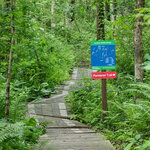Returning Swans to the Wild
E.A.R.T.H. Ltd, the non-profit arm of Southwick’s Zoo, is excited to announce a new conservation program coordinated with the Trumpeter Swan Society.
Southwick’s Zoo was contacted by the AZA and SSP Coordinator for Trumpeter Swans (Cygnus buccinator) and the Trumpeter Swan Society to have the zoo’s trumpeter swans genetically tested to determine if they are Rocky Mountain Population stock. Due to rules governing migratory populations of birds, only swans that are purebred RMP (Rocky Mountain Population) stock can be released or repatriated back into this population which is native to the Greater Yellowstone area.
With the help of Southwick’s Zoo Veterinarian and E.A.R.T.H. board member, Peter Brewer, blood samples were draw from the adult breeding pair of trumpeter swans at the Zoo in hopes of a matched genotype. While waiting for the results on the blood sample results, there was coordinated efforts with David Hoffman at the Iowa Department of Natural Resources to ship three cygnets (swan chicks) which were hatched at Southwick’s Zoo in the spring. This repatriation program does not require a specific genotype.
Requirements for the repatriation program included coordinating with zookeepers, scheduling health exams, obtaining permits and other documentation as well as planning travel arrangements. After all documentation was completed, three cygnets were shipped from Boston to Des Moines on October 3, 2018. This project required a joint effort by staff at Southwick’s and E.A.R.T.H. by Peter Brewer, DVM, CEO of E.A.R.T.H. Betsey Brewer Bethel, Zoo
Registrar and Education Coordinator Lauren Culley, Director of Education Samantha Russak and Lead Zookeeper Duane Long.
The swans arrived safely to Des Moines and were then transported to Laurie Severe Pond in Nora Springs, Iowa. This 18-acre fenced area will be their temporary home for the months to follow, while they adjust to the new landscape and hone their survival skills. There is plenty of natural aquatic food, but they also will be provided with supplemental food over the winter months. These swans, as well as others in the program, will be released in Southern Iowa next spring.
Unregulated hunting and wetland drainage caused a huge decline in the native trumpeter swan populations throughout the country in the late 1800’s and early 1900’s. By the 1930’s a nationwide survey found only 69 swans existing in the continental US, all occurring in the Red Rock Lakes National Wildlife Refuge in southwest Montana. Coordinated efforts between state natural resources agencies and zoological facilities to establish captive breeding programs allowed trumpeter swans to be brought back from the brink of extinction. However, there are still areas where native populations struggle to sustain themselves due to human disturbance.
According to the Iowa DNR, “until 1998, the last wild nesting trumpeter swan in Iowa occurred in 1883 on the Twin Lakes Wildlife Area southwest of Belmond, Iowa in Hancock County.” By participating in this restoration program, these swans will be making an important contribution towards increasing native populations in Iowa.
Trumpeter swans are considered a flagship species for waterfowl and wetlands. These restoration programs give the public a chance to connect with their local environment and allow for organizations like E.A.R.T.H. Limited and Southwick’s Zoo to participate in conservation efforts which help sustain and strengthen native wildlife populations.
###
E.A.R.T.H. (Environmental Awareness of Resources and Threatened Habitats) Limited is a non-profit conservation organization located at Southwick’s Zoo in Mendon, MA. To learn more about how you can support E.A.R.T.H. Ltd., please visit them online at EARTHltd.org, facebook.com/EARTHLimited, or in person at the E.A.R.T.H. Discovery Center inside Southwick’s Zoo.

















Comments
No comments on this item Please log in to comment by clicking here